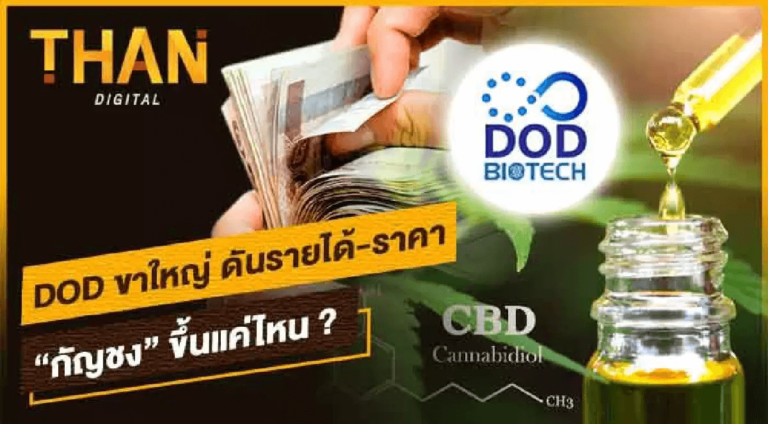Here Is Everything You Need To Know About CBD


There is a sleeper food trend afoot; one that is more popular than probiotics, collagen and gluten-free. Any guesses?
Introducing: cannabidiol, or, CBD, a non-psychoactive chemical compound found within hemp. Yes, yes, hemp, as in cannabis. There are over 100 cannabinoids — or, chemical compounds — in the cannabis plant, and you’re likely familiar with the most famous of them: THC. But unlike THC, CBD won’t get you high.
“Hemp plants have a propensity to produce primarily CBD, whereas marijuana has a propensity to produce THC,” explains Russell Stebbins, founder of the industrial hemp extract company OLEO. These differences are due to genetic variations as well as environment and cultivation strategy, he says. Comparing the two plants, claims Stebbins, is “like comparing a house cat to a lion.”
In 2017, U.S. hemp-derived CBD sales totaled $190 million, up from $129 million in 2016. According to Hemp Business Journal, these numbers will reach $450 million in 2020 and surpass $645 million by 2022. CBD made its debut on the U.S. market in oil form, stocking up the supplement shelves of natural food stores. Then, it was picked up by the beauty industry and now appears in items such as eye serum, face cream, body oil and lip balm, claiming to soothe dry skin, relieve puffiness, and treat acne, among other fixes.
This year, CBD is entering the food industry in full force. If you happen to stay at the Standard Hotel in Los Angeles, New York, or Miami Beach, your mini bar will be stocked with CBD gummies made by L.A. cannabis company, Lord Jones. The compound is also being added to chocolate bars like Kiva — infused with 100 milligrams each of CBD and THC — and Leif Goods‘ fair trade peanut butter and jelly chocolate CBD bar.
This summer, functional beverage company Dirty Lemon released +cbd, a shelf-stable drink containing 20 milligrams of CBD mixed with pure hemp oil and a wellness punch of pineapple, blood orange, and tangerine juices, among other ingredients. “The product has already been incredibly popular and is already waitlisted following a pre-order rush from loyal fans but can be purchased again from today,” a representative of the brand informed me.


A CBD takeover of the beer aisle is also anticipated. Recently, Coalition Brewing Co. announced the release of the first commercially produced cannabidiol infused beer in Oregon, titled “Two Flowers” — a nod to hops and cannabis buds. “The bitter grassiness augments the hop bitterness, while the citrusy terpenes in the CBD mirror the aromatics and hop flavors,” the brewery notes of the novel product.
Quickly, CBD is gaining diversified ground. “We sell CBD to one manufacturer that’s in distribution to all of the Equinox gyms now,” Stillwater Brands CEO Justin Singer tells Food Dive. Stillwater creates powdered teas and coffee that contain THC and CBD and recently launched a new supply arm of the company. “Natural foods grocers and coffee shops are also becoming interested.”
OLEO has seen the same broad enthusiasm for CBD. “We have made tablets, gummies, granola bars, flavored powders, gums, taffies, spray, protein powders, macaroni and cheese,” says Stebbins, all with their powdered CBD.
So what does CBD actually do? That is still, in many ways, to be determined. Several studies have validated the efficacy of CBD in treating some forms of epilepsy and schizophrenia, as well as its ability to alleviate joint pain. But those are the not the most common symptoms you see listed on items boasting CBD. Instead, the compound is often pitched as an elixir for stress, insomnia, anxiety, and more.
Stebbins describes CBD as a natural alternative to Aspirin, useful for anything from a hangover to arthritic pain. As for the claims of relieving stress and anxiety? Stebbins says: “CBD helps to lower cortisol levels which can help to reduce the stress and anxiety a person may be experiencing.” But, when examining the latest studies, these claims are yet to be fully borne out.
“I need to learn more about it,” Dr. Ken Redcross, a concierge physician, confided. “There’s a lot of anecdotal evidence out there, but I’m trying to thresh that all out myself. I’m exercising caution until we can see the benefits, clinically.” But Dr. Redcross is clear: “It’s always nice to have a new pathway to pain management,” so if the studies become convincing, he doesn’t see a reason to shun CBD simply because of its illicit cousin.
Yet, the lack of verified indications is not the only hurdle facing CBD — the other is regulatory. Though now widely available, CBD is still classified as a Schedule I drug. During a session titled “The (Fuzzy?) Future of Hemp and CBD” held at this year’s Nutrition Business Journal (NBJ) 2018 Summit in California, panelists claimed that as long as CBD is derived from hemp, and not marijuana, you’re in the clear. But a closer look at the current laws clarifies that this isn’t true, depending on in which state you reside.
This uncertainty is keeping many businesses on the sidelines. After the hemp-themed session, online polling questions were posed to the NBJ Summit audience. One question asked: “How big of an opportunity are hemp and CBD products for the industry?” Nearly three-fourths of the nutrition and supplement industry respondents chose: “a significant long term opportunity.” Yet, when asked, “After hearing this panel, how comfortable are you operating within the ‘CBD space’?” forty percent of respondents claimed it is “too soon,” while just over a quarter said they feel “very comfortable.”
Still, many in the food industry are betting not just on the national legalization of hemp (which is a part of the pending 2018 Farm Bill), but of marijuana in general.
Keith Villa, former head brewmaster of Blue Moon Brewing Company, recently launched a new cannabis-infused nonalcoholic craft beverage company called Ceria Beverages. Ceria extracts the alcohol from beer and infuses the product with one to fifteen milligrams of THC. The brews are expected to launch with three options: light, regular and full-bodied. But Ceria is not alone in this endeavor. Last year, Constellation Brands, an international producer and marketer of beer, wine and spirits, acquired a 9.9 percent minority stake in Canopy Growth Corporation, a Canadian marijuana company, for the sum of $191 million, with the intention of developing cannabis-infused beverages.
The tactic of micro-dosing is also behind Alto, a brand new line of THC-infused high-end cooking oil, honey, and salt. “Alto is an entirely new category of cannabis products: nutritious and delicious basics, dosed moderately for endless diverse applications,” says Alto founder and chef, Jonah Reider. Every box of Alto delivers ten small packets of a sustainably-sourced, chef-approved ingredient, each containing 5 milligrams of THC. “Unlike most edibles,” explains Reider, “each of these small doses is individually packaged and shelf stable on its own. I carry an Alto packet of finishing salt in my wallet all the time. We’re thinking of an Alto packet as the cannabis equivalent to a great glass of wine!”
Alto’s initial launch is contained to the state of Oregon, but the brand intends to expand to additional states, and a CBD-only line is in the works, which will eventually be available for online purchase, from anywhere.
Now in its infancy, it’s easy to see the varied applications companies may find for CBD. On April 20th of this year, several New York foodie haunts showcased some of the possibilities: CBD brownies at By Chloe, CBD-ghee at Inday, and CBD oil drizzled hot fudge sundaes at Van Leeuwen.
One thing is for sure: We should all pay attention as this green industry evolves.
A bit confused about the differences between cannabis, cannabidiol, and cannabinoid? I’ve put together a simple glossary of all the lingo associated with CBD.












